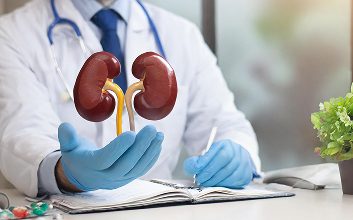Daily Supplements May Slow Macular Degeneration

A recent study reveals that taking vitamins every day can slow down the loss of vision associated with late-stage “dry” age-related macular degeneration (AMD).
Researchers reported July 16 in the journal Ophthalmology that among late-stage patients taking a daily blend of antioxidants and minerals, the rate of dry AMD development into a critical eye region reduced by roughly 55% over an average of three years.
Previous findings have demonstrated that supplements decrease the advancement of intermediate to late AMD, according to National Eye Institute staff doctor and main researcher Dr. Tiarnan Keenan.
According to a news release from the institute, Keenan stated, “Our analysis demonstrates that taking… supplements can also slow disease progression in people with late dry AMD.”
Together with the minerals zinc and copper, the supplements also contain the antioxidants vitamin C, E, beta-carotene, lutein, and zeaxanthin.
According to the Cleveland Clinic, nine out of ten individuals with macular degeneration have dry AMD, which is the most prevalent type of the disorder.
According to background notes from the researchers, dry AMD is caused by tiny yellow deposits of fatty proteins called drusen that begin to form along the light-sensing retina at the back of an individual’s eye.
The loss of light-sensitive retinal cells brought on by these deposits is known as “geographic atrophy,” and it gradually gets worse over time. People gradually lose their center vision as a result.
The fovea, a tiny depression in the retina’s center that is in charge of providing clear central vision, was the subject of the most recent study.
Researchers found that many individuals with dry AMD first experience geographic atrophy outside of the fovea and only experience central vision loss after AMD invades the fovea.
In order to conduct the new study, scientists examined information from two clinical studies involving over 1,200 patients to see whether supplements may effectively halt the course of AMD. The federal government provided funding for the trials.
According to the analysis, consuming supplements could decrease the advancement of dry AMD to the fovea in those whose eye disease had not yet reached that critical area.
For activities like reading and driving, our high acuity center vision is crucial, according to Keenan. Antioxidant supplementation is an easy step that may delay central vision loss, especially for those with late-stage dry AMD, since there are few treatment alternatives available to help patients keep or restore their vision.
To validate these findings, researchers intend to carry out a second clinical experiment, according to Keenan.
The Cleveland Clinic has more on dry age-related macular degeneration.




